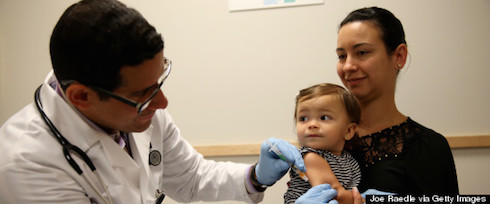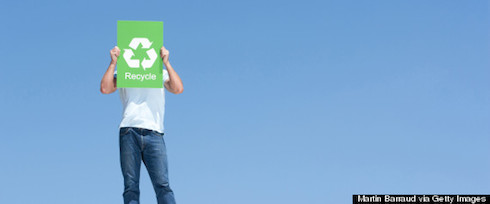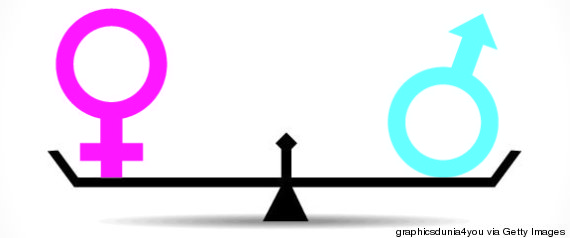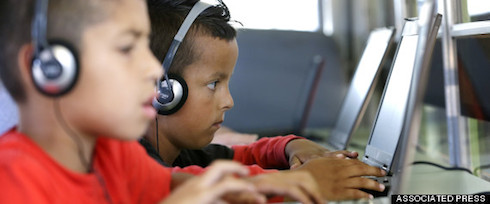|
Axis of Logic
Finding Clarity in the 21st Century Mediaplex
World View
A little good news: 7 Reasons The World Isn't Totally Screwed Right Now
By Carina Kolodny, HuffPo
Huffington Post
Wednesday, Aug 6, 2014
If you've turned on the news lately, you may have gotten the sense that the world is falling apart. From rising body counts in Gaza and Israel to a plane getting shot down in Ukraine to increasing violence in Nigeria and Syria, it can often seem like a never-ending stream of grim realities.
But although bad news is dominating the headlines, it doesn't mean those are the only stories out there. The sky isn't falling -- and the proof isn't hard to find.
Amazing Advances In Medicine Are Happening Daily
- Every day in Africa, more than 1,500 children die of malaria -- but that might not be the case for long. A pharmaceutical company is awaiting regulatory approval on a new drug that could be the world's first malaria vaccine. According to Time magazine, it may be available to the public in one year's time.
- An experimental drug for hepatitis C got rid of the disease in more than 95 percent of patients during trials. It's currently awaiting FDA approval, and could be a cheaper way to treat the disease than medication currently on the market.
- A 19-year-old from Chicago might be well on his way to discovering a cure for colon cancer. His experimental vaccine has been 100 percent effective in ridding young mice of malignant tumors.
Huge Strides Are Being Made For LGBT Equality
- On Aug. 1, Uganda struck down its draconian Anti-Homosexuality Act, which made some homosexual acts punishable by life in prison.
- The United Nations announced last month that it will recognize same-sex marriage of all employees, regardless of whether their home country outlaws it.
- In the past 10 years, 21 states and the District of Columbia have recognized same-sex marriage.
Programs To End Poverty Are Working
- Using the World Bank's classification of low-income countries, philanthropist and billionaire Bill Gates wrote in his foundation's annual newsletter that "by 2035, there will be almost no poor countries left in the world."
- The U.S. food stamp program isn't just working -- it's helping millions. According to a recent article in the New Republic, "program benefits improve the long-term health outcomes of children" and "reduce the number of households with children in the U.S. living in extreme poverty by about half."
Protecting The Environment Is Increasingly Popular
- The Philippines is hopping on the electric vehicle bandwagon -- or in this case, the electric taxi tricycle. In an effort to reduce urban pollution, the country has invested in 100,000 electric-powered tricycles that will be rolled out in 2016, according to Fast Company.
- If you haven't heard of Tesla yet, it's time to get up to speed. The electric car company is proving that a green business isn't just possible, it's hugely profitable and has the potential to disrupt and transform the gas-guzzling auto industry.
- Indigenous farmers in Peru are banding together to fight climate change and diversify their agricultural output by saving and exchanging seeds. Their hope is that by collaborating, they can identify the strongest and most resilient crop varieties and encourage biodiversity throughout the country.
Women's Rights Are Improving
- As of July 2014, Saudi Arabian women can vote and run in municipal elections. This means they'll be able to vote in the upcoming elections in 2015.
- Egypt criminalized sexual harassment last month with a law that can send offenders to jail for up to five years. And just last week, a group of dozens of civilians took to the streets to raise awareness about street harassment and violence against women.
- On Aug. 1, the United Nations High Commissioner for Refugees held the first international convention to address gender-based persecution. Women can now seek asylum due to gender-based violence.
New Technologies Are Enhancing People's Lives
- War victims in Sudan are getting help from a Los Angeles company that is using 3-D printers to create low-cost prosthetic limbs.
- People in Zambia who have cellphones but no Internet connection will now be able to access health and education services online, thanks to an app recently rolled out by Facebook. The company says it plans to expand the program into other countries as well.
- Researchers at the MIT Media Lab are working on a device called the "FingerReader," which scans written text for the visually impaired and reads it aloud. According to its creators, the device "could help the visually impaired read everything from books to restaurant menus to important forms at doctor’s offices, and thus increase a visually impaired person’s self-sufficiency."
Everyday People Are Coming Up With Innovative Solutions To Complicated Problems
- Four MBA students from McGill University in Canada might have come up with an unexpected cure for world hunger: insect farming. The students are testing their concept in a pilot program in Ghana, where they're teaching rural farmers how to breed tiny bugs called palm weevils.
- An Indian man named Mansukh Prajapati has designed a new fridge that stays cool without electricity. The fridge costs about $50 and could be a game-changer for the environment and communities lacking electricity.
- In Goma, a city in the Democratic Republic of Congo that has been called "the rape capital of the world," one group of women is taking their lives into their own hands. They've trained as mechanics and started an auto body shop -- lifting themselves out of poverty and empowering themselves along the way.
Source URL
|
|






